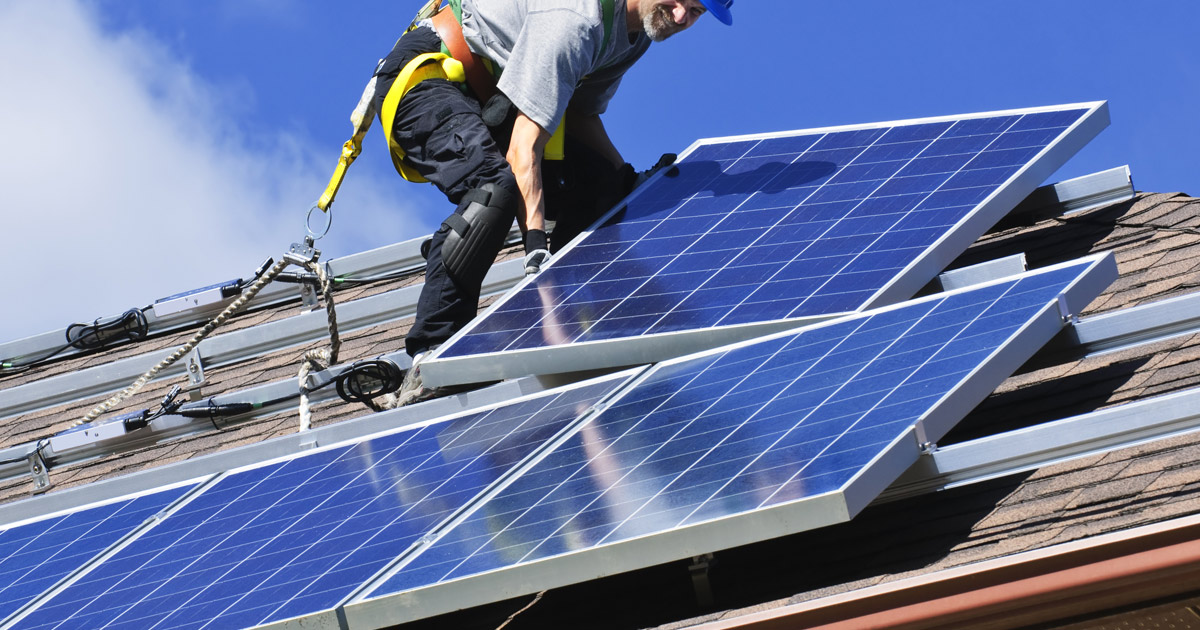
Every industry is susceptible to work accidents that lead to employee injuries and fatalities, and the renewable energy industry is no different. As green energy becomes more prevalent, the increase in job opportunities cause new concerns, such as worker safety. Although there is evidence that renewable energy seems to be much safer than traditional energy sectors, green energy jobs present risks for employees. Some common risks include exposure to dangerous machinery or substances, possible burns or shocks from electrical currents, and working at heights.
What is Renewable Energy?
The shift to renewable energy is part of the push to produce energy sources that replace fossil fuel-based energy, such as coal, oil, and natural gas. Renewable energy sources include hydropower, wind power, and solar power.
Instead of digging into the earth to collect fossil fuels to be burned for energy, hydropower harnesses energy from running water sources. Wind power depends on capturing energy from wind turbines. Solar power uses panels that collect energy from the sun.
Are Green Jobs Safe?
Jobs in the renewable energy arena are less dangerous than traditional energy occupations. However, green energy jobs still present risks for employees. It is well-known that jobs like coal mining are among the most dangerous occupations. Yet, the risks associated with energy jobs in solar, wind, or hydropower are dangerous too. The hazards of green energy are similar to the types of work-related dangers found in other high-risk manual labor jobs.
Based on data compiled by Statista, the risk of death for coal workers was recorded at a rate of 100,000 fatalities per terawatt-hour. The oil sector was responsible for 36,000 deaths per terawatt-hour. Natural gas workers died at a rate of 4,000 per terawatt-hour. By contrast, the renewables came in much lower, with hydropower at 1,400 deaths per terawatt-hour, rooftop solar totaling 440 deaths per terawatt-hour, and wind attributing to 150 deaths per terawatt-hour.
What are Some of the Dangers Associated with Renewable Energy Jobs?
Renewable energy workers perform a variety of different jobs. Many work in confined spaces, using dangerous machines with sharp blades or fast moving parts. Some workers are at risk of burns or electrocution. Other employees work on elevated structures that put them in jeopardy of serious slip and fall accidents.
What are the Best Ways for Industry Leaders to Ensure Work Safety?
There are many ways that leaders in the renewable energy sector can work toward to protect their employees from injuries or death. The basic safety principles and how they apply to renewable energy jobs are detail below.
Recognize Threats
Safety on any jobsite begins with the recognition of specific dangers and what precautions may be implemented to reduce the risks of accidents. Such recognition is best acquired by doing a safety assessment. An assessment seeks to identify possible dangers that put employees at risk.
Safety Standards
The Occupational Safety and Health Administration (OSHA) has established safety standards for workers who perform their jobs in dangerous settings. There are established rules for working at high heights or with dangerous machinery. However, the OSHA has not created safety protocols specifically for the renewable energy sector. Safe use of new green energy technology depends on established safety standards as they were implemented for jobs in traditional energy. Safety standards for electrical power generation, transmission, and distribution that were established by the OSHA are used to guide solar energy companies.
Workers who do their jobs atop wind turbines 100 feet above the ground or use heavy energy-harvesting machinery should incorporate protective measures. These standards for fall prevention or heavy machinery use often do not address many additional dangers specific to the renewable energy industry.
As the renewable energy industry grows, specialized safety regulations may become available, but for now, many industry leaders have begun to establish their own. The Global Wind Organization seeks to identify and eliminate safety risks through training in equipment maintenance, emergency response, first aid, and other specific safety protocols.
Employee Training
All employees should receive thorough training on equipment and job duties. They should also be trained on how to recognize and respond to safety issues and emergencies. Ongoing training for all employees is essential for a safe workplace as well. Safety should be a constant topic of concern that is revisited regularly. Postings, contests, bonuses, and frequent reminders all serve to keep safety on the minds of team members.
Equipment Upkeep
As with common safety threats in other industries, many renewable energy jobs involve working with dangerous equipment. Employers should endeavor to keep all machinery maintained to the highest standards for safety.
Provide Safety Equipment
Employers should provide employees with all necessary personal protective equipment (PPE). Helmets, safety goggles, reflective attire, and protective gloves are some of the items that may help keep workers safe. Employers should also invest in safety technology, such as tools that alert employees about nearby hazards.
What Should I Do if I Have a Work Injury?
If an employee is injured while doing their job in the renewable energy industry, they should be covered by Workers’ Compensation. This coverage should provide benefits to pay for medical bills, as well as lost earnings that resulted from the injuries. For help with a claim, an injured employee should contact a lawyer as soon as possible.
Pittsburgh Workers’ Compensation Lawyers at AlpernSchubert P.C. Represent Injured Renewable Energy Employees
A dedicated Pittsburgh Workers’ Compensation lawyer at AlpernSchubert P.C. can help you prove that your injury resulted from your work and that you deserve to be compensated. Contact us online or call us at 412-765-1888 for a free consultation today. Located in Pittsburgh, we serve clients throughout western Pennsylvania, including Allegheny County, Lawrence County, and Washington County.
